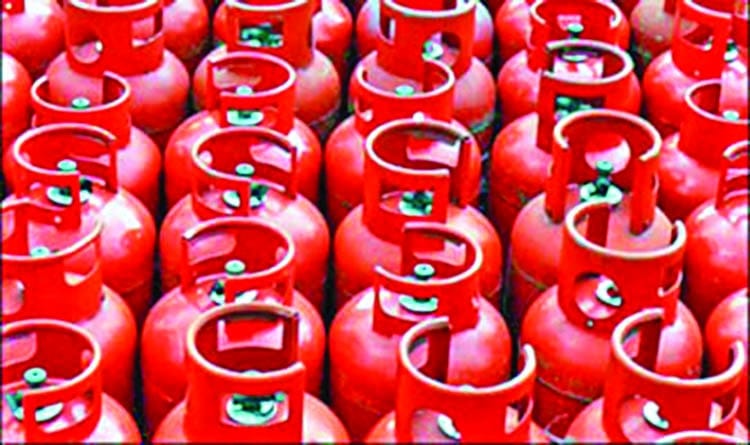Saleque Sufi: The burgeoning economic development of Bangladesh, GDP growing at consistent impressive rate of above 6% over the past decade created challenges for smooth supply of primary fuel. Till end of the past century own natural gas almost exclusively dominated fuel supply for power, industry, fertilizer and even to domestic and commercial consumers. Hesitation in taking political decision for mining only other major fuel alternative coal and continued failure in expediting exploration and development of petroleum in onshore and offshore prospects pushed Bangladesh to imported fuel – Coal, LNG, LPG and other petroleum products.
The LPG utilization which started from utilizing crude derivative from Eastern Refinery Limited (ERL) and a small plant at Koillashtilla Gas field got momentum since the introduction of private sector in LPG import, bottling and distribution. The LPG market started growing faster since 2016 following official suspension of pipeline gas supply to domestic consumers. From 2016 to 2020 the domestic market witnessed phenomenal growth from annual demand of 80,000 tonnes to 1 million tonnes. A recent JICA study forecasted the domestic market growing to 3 million tonnes by 2025 and 6 million tonnes by 2041. At present 56 companies have license for operation in Bangladesh. 28 of these companies are already in business. 20 more companies have initiated actions for import of LPG. An estimated US$3 billion has been already invested. 20 tankers, 500 trucks, 21 LPG vessels and 20 satellite plants have given domestic market capacity for meeting existing and emerging demands. Jakaria Jalal inform those data in recent webinar titled “LPG Pricing Dilemma” on December 26.
In the wake of major depletion of domestic natural gas reserve, government has announced final decision for no new pipe line gas supply for domestic use. LPG will definitely be the fuel of choice for cooking. LPG as auto gas is growing as popular fuel for automobiles. But at present super saturated LPG market in the context of market demand, absence of regulatory control, absence policy for safety and absence of regulator policy safety have created challenges for smooth operation of LPG business. Moreover, some unethical business practices have created concerns as well.
Appropriate pricing, price structure are other aspects of LPG business. In a recent digital seminar organized by Energy & Power LPG Pricing Dilemma were discussed, deliberated and debated. Energy Advisor to Prime Minister and Energy Minister of Bangladesh, Industry Leaders, Academic Researchers, CAB leader participating in the discussion had meeting of mind on pricing issue. This write will attempt in objective analysis of the situation.
Challenges of LPG Business
The keynote paper presenter highlighted the following challenges.
Supply of LPG, Improper Guidelines of Operation., Absence of Modern Safety Rules and Lack of Compliance, Improper VAT and Tax Structure, Inadequate Drafts at Existing Ports, Lack of Countrywide Good Road Infrastructure and Unethical Business Practices. We can discuss all these in a little depth.
- Supply of LPG: We are aware that only a small fraction (1.5% of National Demand) is supplied from lone crude oil refinery. LPG liquid is imported from different companies from international market following different strategies. Due to limited draft at Chottogram and Mongla ports, LPG is either imported using smaller vessels or through transshipment from mother vessels anchored at deep water. These adding to transportation make the overall cost for reaching LPG to consumers level higher. Till a deep sea port at Matarbari and Payra comes into operation and a combined deep-water terminal for Liquid Fuel is operational, this challenge cannot be overcome. Other options can be expediting construction of a Second Large Refinery creating facility for additional LPG supply. This may take 5-7 years. Bangladesh may discuss with India for importing LPG from Indian Refineries in adjacent states of India. At least four such refineries adjacent to Bangladesh border cannot use full capacity for their distance from nearest port. Transporting crude and disposing of refined products are issues. Bangladesh in future can let India use Matarbari port facility for importing crude for these refineries and also disposing off refined products on condition of preferential access for Bangladesh in refined products. Raliway transportation of Crude from Matarbari to Refineries and Refined Prodcucts from Refinery to Bangladesh and port can follow win-win contracts negotiated.
- Improper Guidelines for Operation: A genuine question arises as to the number of organizations regulating LPG business. In free market business operation open to public and private operators independent regulators with well articulated regulatory guidelines set level play ground for fair play. BPC as government agency in business also operate LPG business partially. It is a definite conflict of interest. BERC Act does not clearly provide its mandate for regulating LPG business. Neither Explosive Directorate nor BERC has developed policies or Guidelines for LPG business operation. If BPC stays in LPG business, it must compete with private operators as business enterprise. Its regulatory functions must be taken out, BERC should be strengthened as sole regulator. BERC must formulate guidelines and ensure compliance. Explosive Directorate must also be strengthened for policing safety. Intensive safety auditing and policing of safety at all stages LPG import, storage, bottling, transpiration, refilling and disposal will assist smooth growth and development of business. Unfair business practices will be done away with. Only companies in fair business would survive.
- Improper Tax and VAT Structure: We must realize that the entire population of Bangladesh has constitutional right for access to energy at affordable price. Now consumers in gas franchise only getting the blessings of cheaper pipeline gas. Rest of the country even many in Southern and Western Region of Bangladesh are deprived from own gas use. They either have to use expensive LPG or other form of Bio Mass. This is discrimination. In this situation government must find ways how to make LPG price competitive to Pipeline gas. True that reliance on Imported LPG and lack of port facilities cannot keep price lower and competitive. The only way left is reforming tax and VAT structure making price, reducing the gap between pipeline gas and LPG. If necessary, cross subsidy can come under consideration. Till all these can be worked out, an unique pricing formula for pricing can be formulated taking into consideration all components of pricing.
- Inland Transpiration: This writer during recent visits in different areas of Bangladesh has observed with great concern that LPG bottles are transported and stored at remote areas of the country in very unsafe manners. We are aware that some companies have modern transportation facilities from bottling plants to satellite stations but all does not have. Roads are not in good conditions in many areas. Petroleum Pumps must restrict as far as the retail business practicable. The distributors must be trained and made to sign safety agreements for smooth transportation and storage of LPG.
- Unethical Business Practice: BERC alone or BERC and Explosive Directorate jointly must carry out efficiency and safety auditing regularly for policing unethical business practice. There are credible allegations of using substandard meters and hose. These create safety hazards and cause accidents.
Pipe Line Gas and LPG for Cooking
Being a life long gas professional deeply involved in gas supply to different consumers for almost three decades, I now feel the strong logic of phasing out pipeline supply of gas to domestic consumers. 18% of total gas is now supplied to domestic consumers. There are thousands of illegal consumers. Government has taken right decision for not providing any new gas for domestic use. At the same time setting a target of 2-3 years government must phase out pipeline gas supply for domestic and commercial use. At the same time, gas supply to CNG must also be gradually replaced with Auto Gas. We are sure that the proponents of CNG by now realized that CNG use has not delivered the cherished vision.
Bangladesh needs adopting the right fuel mix for energy generation as it will increasingly become imported fuel depended. Fuel choice must be rational and pricing must be logical. For cooking LPG must be the preferred fuel. Before letting so many operators in LPG business the regulatory capabilities must have been strengthened, own experts must have assessed market development and safety procedures must have been developed with provisions for auditing and policing. In free market economy with so many operators already making significant investments fixing price would not be proper at this stage. However, a flexible pricing formula can be adopted. Bangladesh situation must not be compared with India. Its refineries can feed more than 50% of its LPG demand. Its ports have draft for importing LPG by proper vessels. Petroleum and Natural Gas Regulatory Board and state regulators can police safety. Comparison in such situation is not apple-to-apple.

